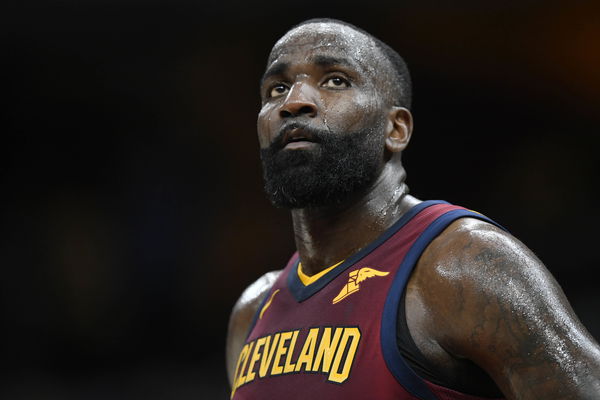
Imago
Image Credits: Imago

Imago
Image Credits: Imago
American basketball fans are all asking the same question: how on earth has there not been a U.S.-born MVP since 2017? Even the latest star in the race, Shai Gilgeous-Alexander, is Canadian. It feels like the “Europeanization” of the NBA started and just never stopped. But can we blame the Luka Dončićs and Giannises of the world for this shift? Of course not. Who wouldn’t want to watch Luka putting on a clinic every night? Still, Kendrick Perkins thinks there’s a real reason behind the drop in American dominance, and he’s not shy about pointing the finger.
Meanwhile, the NBA itself is doubling down on Europe. Commissioner Adam Silver has been overseas, meeting everyone from Real Madrid officials in Paris to equity firms in London, working on plans for a full-fledged European league. The idea? 12 permanent teams, 4 rotating wild cards, and a packed calendar of international action. It’s already in motion, too. Starting January 2026, regular-season games will hit Berlin and London, with Paris and Manchester lined up through 2028. And to kick it off, the Orlando Magic, featuring German brothers Franz and Moritz Wagner, and the Memphis Grizzlies will headline the first wave.
ADVERTISEMENT
But while the NBA celebrates this big European push, Perkins is right there reminding Americans to focus on the basics. On his Instagram story, he warned, “The AAU basketball especially in Texas is sad and it’s FALSE!!!! Parents one day yall will wake up. These sites ain’t about shit and false advertisement. Get in the gym with your children and WORK!!! Free Game.” It’s classic Perkins: blunt, direct, and all about putting in the work.

USA Today via Reuters
Apr 11, 2018; Cleveland, OH, USA; Cleveland Cavaliers center Kendrick Perkins (21) reacts in the fourth quarter against the New York Knicks at Quicken Loans Arena. Mandatory Credit: David Richard-USA TODAY Sports
AAU basketball is essentially competitive travel ball that runs all year, from small local teams to elite national programs. Many see it as a way to grow skills and get in front of college scouts. It’s organized by the Amateur Athletic Union, which runs youth leagues and tournaments outside the school system. Still, it hasn’t escaped criticism; even Kobe Bryant once called it “terrible” for player development.
The growing gap between American and European youth basketball
ADVERTISEMENT
Kendrick Perkins recently spoke some hard truths about American youth basketball. On a recent episode of Road Trippin’, he said, “The NBA being global. It doesn’t help American basketball players.” As the league gets more international, competition from overseas is heating up, and honestly, American players are struggling to keep up. Perkins saw this firsthand at an AAU tournament, where the raw talent was there, but the whole vibe felt chaotic. Parents and families were caught up in hyping stats and rankings, not realizing just how far behind their kids might be compared to international players. He put it bluntly: while Americans focus on surface-level achievements, there are already “six Wembys in France,” being developed in way more structured and disciplined systems.
Perkins went even further to explain how serious the gap is. “They probably have about seven in each class. Seven Lukas and Jokics out there that we don’t know about… you probably won’t hear about them until your kid is actually a senior.” And it’s not just Europe, he even mentioned the Basketball Africa League. Jefferson backed him up, saying, “They’re looking for those Embiids and those Giannises and those Pascal Siakams. They’re looking for them.” Perkins highlighted the difference in professionalism, too—Jokic’s quiet focus, Giannis’ humility, and Shai Gilgeous-Alexander’s steady dedication—all traits that American prospects often lack due to a lack of discipline.
What really drives the point home is Perkins’ example from the “All the Smoke” podcast. He said, “Hell nah, it’s not an overreaction; it’s a real thing.” His son’s teammate moved to the Netherlands, and Perkins explained the difference like this: “With AAU, we’re playing games every f—– weekend, traveling here, traveling there. Over here? They play once a week. They practice the rest of the time. That’s what we’re missing.” European players get focused training, fewer games, and more time to develop their skills and basketball IQ. That’s how players like Jokic and Doncic grew up playing against adults in professional leagues as teenagers—something American youth rarely experience.
ADVERTISEMENT
ADVERTISEMENT
ADVERTISEMENT
ADVERTISEMENT